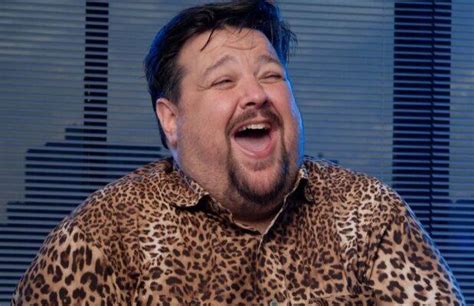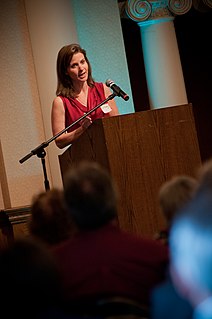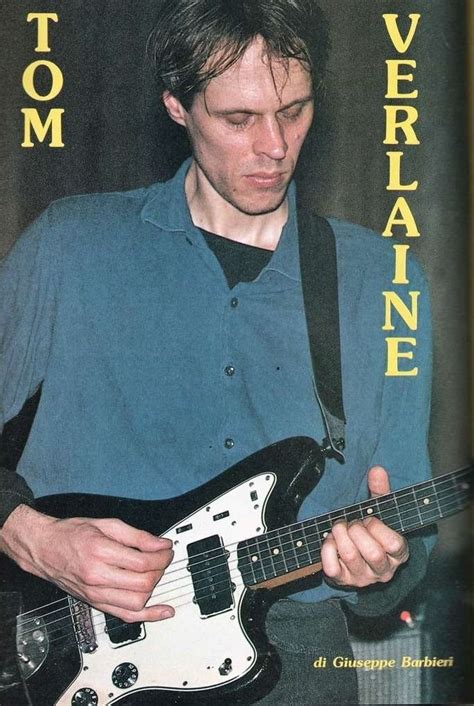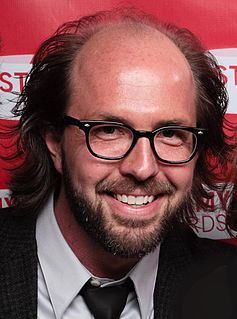A Quote by Chris March
I'd say, 90 percent of the time, I get an idea, like, within 10 seconds of somebody telling me what their whole thing is about. And usually that flash of an idea, it's what I always go with. It might change slightly, but in general, that's pretty much it. To get me to change the entire idea is pretty tough.
Related Quotes
I feel like there's a voice in my head, always, telling me every idea is brilliant, and another telling me every idea is the worst. And they argue in my head until somebody wins, until I solicit an audience to be, like, 'Will you help me figure this out? Is this the best or the worst idea?' And they tell me!
People ask me this a lot, what a song's about.... I do think analyzing a song can be interesting, although it doesn't necessarily get to the point. It's a whole other side activity. I do like making a thing into pictures. If I get an abstract idea and all the words in it don't represent tangible things, I might try to take the idea and make it into a picture, create a little scene there, an image.
We're living history all the time, in the papers, in the news, you think about stuff and it goes into your brain and you think about it and it comes out somehow. You have an idea; you've heard a phrase, or you're angry, or something disturbs you, or something seems paradoxical to you, you explore that idea, much like a writer would explore maybe an idea through metaphor. Maybe artists use their vehicle to explore ideas, so I think the things that interest me are the kind of idea of continuous change and how nothing stays the same and it's always disintegrating into something more.
The creative process for a musician is very different than for a filmmaker. I have an idea and I can pretty much execute it. As old as I am now and as long as I've been doing it, I can pretty much get it done in a week. While a filmmaker has a great idea that should be out tomorrow, but he has to go through this process of getting financing, then selling it, then casting. I've always been in awe of filmmakers and their patience in realizing their vision because I could never do that.
There's not a whole lot of similarity between the two societies, Russian and American. There are similarities behind psychological forces. One thing we can learn is that things can change pretty fast. And this idea that we know who we are and that things can only get so bad in this country - that's wrong.
I very early caught on that the editor of Cincinnati Post had something specific in mind that he was looking for, and I tried to accommodate him in order to get published. I would turn out rough idea after rough idea, and he would veto eighty percent of them. I pretty much prostituted myself for six months but I couldn't please him, so he sent me packing.
I've always drawn a lot. I like the idea of turning a 2-D sketch into a 3-D thing very quickly. And clothing is really good for that. You can draw an idea in the morning and you can see it by the end of the day. I think if it were something like a four-month process to get from the idea to the final thing, I would get quite bored.
People thought it was asinine for me to change my swing after I won the Masters by 12 shots. ... Why would you want to change that? Well, I thought I could become better. If I play my best, I'm pretty tough to beat. I'd like to play my best more frequently, and that's the whole idea. That's why you make changes. I thought I could become more consistent.
I wanted to get more serialized. I had this idea for an event that would click onto everybody's mortality. I said, "I want somebody to die." Fortunately for me, when I was toying with that idea, John Landgraf, who's the head of FX but also a very smart executive, came up with the idea of the ashes in the maracas. He called me up and said, "Listen, what about this, they get the ashes in a box and when they get them, they shake them and they sound like maracas." And I was like, "Okay, now I've got my throughline."
The Sophists had this idea: Forget this idea of what's true or not—what you want to do is rhetoric; you want to be able to persuade the audience and have the audience think you're smart and cool. And Socrates and Plato, basically their whole idea is, "Bullshit. There is such a thing as truth, and it's not all just how to say what you say so that you get a good job or get laid, or whatever it is people think they want.








































